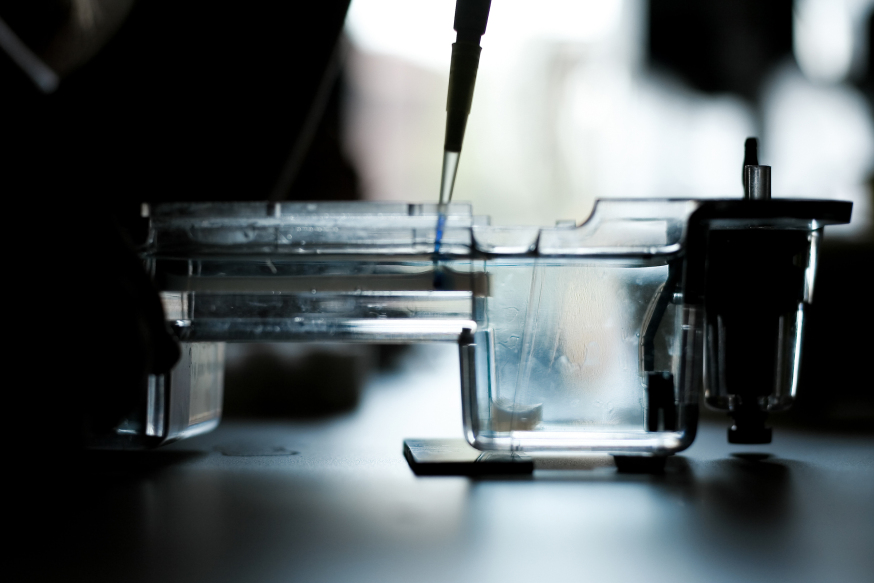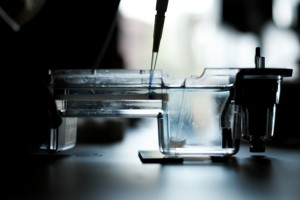The British regulatory body that heard arguments last month for controversial experiments on human embryos has given scientists permission to play around with certain genes in those embryos in an attempt to answer questions about infertility and miscarriage.
The U.K. Human Fertilization and Embryology Authority (HFEA) on Monday gave the Francis Crick Institute permission to deactivate certain genes in “leftover” embryos from IVF clinics to see if it hinders development. The institute could begin the experiments as early as March,The Telegraph reported:
Currently around 50 percent of fertilized eggs do not develop properly and experts believe that faulty genetic code could be responsible.
If scientists knew which genes were crucial for healthy cell division, then they could screen out embryos where their DNA was not working properly, potentially preventing miscarriages and aiding fertility …
All cells in a human embryo have the same DNA code, but they divide into specialized cells depending on gene expression.
Between day five and seven of human development an embryo has around 200 cells of three different types. One set will go on to form the fetus, while another type becomes the placenta and the third kind the yolk sac which nourishes the growing baby. The aim of the new project is to find out what causes the cells to turn into different kinds, a process known as “lineage specification.”
The new genetic editing technique, called Crispr, acts like molecular scissors to snip out part of the DNA code so that scientists can see if it was needed.
The embyos will be edited when they are just a few days old.
Talk of “screening out embryos” suggests eugenics, and yet The Telegraphsaid that the initial pilot, which may involve up to 120 embryos, will “also have to pass an ethics evaluation.”
Some ethicists have already given the scheme a failing grade. When the HFEA was hearing the proposal from U.S.-trained Dr. Kathy Niakan last month, David Albert Jones, director of the Oxford-based Anscombe Bioethics Centre, said, “It is clear that these proposals for genetically modifying human embryos represent a further step toward the creation of [genetically modified] babies. … New techniques using ‘gene editing’ offer the hope of ethical and effective therapy of children or adults who were born with conditions that currently have no cure. Safe and effective somatic gene therapy should be the focus of our research, not more experimentation on human embryos which will be effective only in paving the way toward GM babies.”
Benjamin Harnwell, founder and president of the Board of Trustees of the Rome-based Dignitatis Humanae Institute, found a strange irony in the timing of the HFEA’s announcement.
“This arrogant cabal of mad scientists and dull-witted bureaucrats has given its consent to the genetic ‘editing’ of human beings within hours of scientists elsewhere now suggesting a link between the Zika virus and Oxitec’s earlier genetically-modified mosquito program in Brazil,” Harnwell told Aleteia on Monday. “The Wellcome Trust is saying that Zika could easily prove to be more dangerous than Ebola.”
“Not content with playing about with insect DNA, we now want to build on that great success and meddle with our own genetic blueprint,” continued Harnwell, who is also honorary secretary of the Working Group on Human Dignity in the European Parliament.
British scientists were among 150 experts who in November called for a worldwide ban on genetic editing of embryos claiming the practice could open the door to “irrevocably altering the human species,” The Telegraphsaid.
Nola Lean of Christian charity CARE said: “This decision opens the door to full-blown eugenics and you have to wonder where it will stop.
“The sanctity and equality of human life is under threat as never before, it would seem, as we push ahead crossing one ethical boundary after another.”
Dr. Calum MacKellar, Director of Research of the Scottish Council on Human Bioethics said: “Allowing the gene editing of embryos opens the road to genetically modifying all the descendants of a person as well as full blown eugenics which was condemned by all civilized societies after the Second World War.”
“It is the very future of the way in which societies accept persons with disabilities that is at play since such gene editing procedures infer that they should not have been brought into existence.”
Researchers will not be allowed to implant the genetically-modified embryos into the womb, so the embryos are basically doomed to an extremely short life as human “guinea pigs.”
“Embryos are living human beings. Gene-editing research will mean killing every human embryo who is abused in this way,” said Paul Tully, deputy CEO of the UK’s Society for the Protection of Unborn Children. “The HFEA’s decision-making is devoid of any principle of concern for the humanity of embryonic children.”
………………………….










